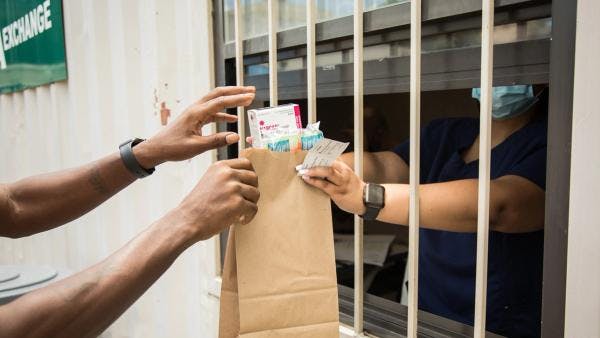NIDA - Photographer: Sonya Revell - Flickr - U.S. Government Work - https://flic.kr/p/2o64hEZ
Needle and syringe programmes save lives: Why The Economist’s article on them got it wrong
By Rt Hon Helen Clark, Chair of the Global Commission on Drug Policy
The Economist usually publishes excellent, robust articles on drug policy. But in its 1 December issue, which somewhat ironically is World AIDS Day, was an opinion piece titled ‘America’s syringe exchanges might be killing drug users’.
The unnamed author of the piece called on public health experts to update their thinking based on the ‘fresh evidence’ from a single piece of literature published in June 2022. The single study the author relied on is an outlier amongst decades of international scientific evidence showing the benefits of needle and syringe access services (NSPs). Would The Economist so forcefully disregard hundreds of scientific peer-reviewed studies demonstrating the effectiveness of COVID-19 vaccines based on a single study claiming that they were ineffective? I think not.
Would The Economist so forcefully disregard hundreds of scientific peer-reviewed studies demonstrating the effectiveness of COVID-19 vaccines based on a single study claiming that they were ineffective? I think not.
The most disturbing claim in the article was that NSPs are ‘killing drug users’. This claim goes to the heart of the problem with the original research, albeit somewhat exaggerated by the author of the opinion piece. As might be expected, NSPs are implemented and maintained in places with higher density of injection drug use, where opioid overdoses are more likely to occur. Yet the author has failed to account for ‘survivor bias’. That is, NSPs are more likely to be maintained and ‘survive’ in areas with increasing injection drug use, and thus likely to experience increasing overdoses.
The author of the original research paper, Analisa Packham, also states that NSPs won’t fix the overdose crisis in the context of widespread fentanyl contamination; that is uncontroversial, and no one claims it to be the case. We need a broader suite of interventions for that. Yet, the article uses that argument to justify a distortion of the scientific evidence.
I do agree with the author on one point. If we want to curb the opioid epidemic, we need to get serious about implementing regulatory change. The drug market will continually move towards more novel, potent substances as a predictable outcome of prohibition. Regulating supply must be on our agenda.
I do agree with the author on one point. If we want to curb the opioid epidemic, we need to get serious about implementing regulatory change.
The evidence is clear: NSPs don’t encourage drug use. Rather, a longstanding body of literature shows that this approach has been effective in preventing the transmission of bloodborne diseases such as HIV and Hepatitis C (and, indeed, other infections with serious complications, such as abscesses). Therefore, New Zealand, which was an early adopter of NPSs in the 1980s, has largely prevented endemic HIV rates among people who inject drugs – a very different outcome from that in countries that did not implement such programmes early.
The opinion piece also challenged the efficacy of a range of life-saving harm reduction measures: HIV pre-exposure prophylaxis (PrEP), naloxone (the lifesaving medicine that reverses opioid overdoses), and supervised drug consumption spaces. Like NSPs, neither naloxone nor consumptions spaces alone can reverse the opioid epidemic, but they do play a very important role. Both are saving people’s lives by preventing or reversing overdose.
In their commentary on PrEP, the author says that adoption of the treatment doesn’t reduce condomless sex. Literature on the implementation of PrEP shows it has achieved remarkable reductions in HIV incidence, without an increase in other sexually transmitted infections. Again, the purpose of PrEP is to reduce the number of HIV infections, and not to discourage gay men from having condomless sex. NSPs alone cannot solve the opioid epidemic, but they are an important piece of the puzzle. We need a range of harm reduction and social services alongside policy and law reform. We also must approach these issues with compassion and understanding.
NSPs alone cannot solve the opioid epidemic, but they are an important piece of the puzzle.
I hope The Economist returns to its usually robust reporting on these issues, and treats the victims of dangerously ineffectual drug policy with the same compassion afforded to any other group of people.
